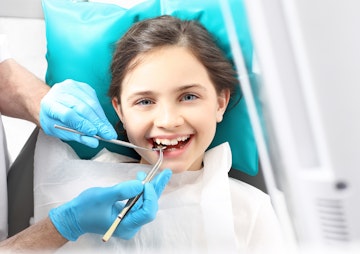Nutrition to help children’s teeth

As you all know, our teeth are directly affected by the food we eat and the beverages we drink. However, children’s teeth experience even greater impact. Children should follow a balanced, nutritious and healthy diet that will be able to aid the growth and maintenance of their teeth. However, what they consume can also increase or decrease the chances of developing tooth decay and fillings.
Consumption of high amount of carbs, sugars and starches can lead to tooth decay. If these foods and liquids remain on the child’s teeth for a long time, the chances for tooth decay will be higher. One of the simplest and most efficient solutions that every parent can do is to make their children understand what healthy food is and why it is important to consume healthy food. The following is a list of foods that can improve the health of our teeth and they are especially useful for young children.
Veggies and fruits
Change the carbs with veggies and fruits when your child asks for a snack. Fruits and vegetables that are packed with water like melons, pears, cucumbers and celery have proven to be the best foods for teeth. Raisins and bananas are loaded with concentrated sugars and they are not very good for the dental health of your child. That’s why you need to offer them these foods less frequently.
Stay away from chewy and sticky foods
Dried figs, raisins, sticky biscuits, cereal and energy bars, jellybean’s, honey, caramel and other similar foods are difficult to remove from the teeth. Their substances become glued to the teeth so if they consume these snacks, it is sensible that your child brushes their teeth right away.
Cheese
Cheese can be used during dinner or lunch or even as a snack. Almost every type of cheese stimulates the production of saliva and with the help of saliva; your kids will be able to remove the leftovers that get stuck in the teeth. Finally, your children should stay away from sugary products as much as possible. The occasional treat is fine but it shouldn’t form a regular part of their diet.
For more advice about nutrition and its impact on your child’s teeth, please get in touch.
Call us now to make an appointment

Keep reading...
What can you drink during your Invisalign treatment
One of the rules of the treatment that patients often struggle with is the water rule. While you are wearing…
Top 6 things to know before starting Invisalign treatment
In this guide, we’re sharing six things we wish all patients knew before starting treatment. This could help you to…
How Much Does Invisalign Cost in the UK?
Instead of fixed braces, you wear a series of clear plastic aligners. These aligners apply gentle pressure to your teeth…
Does Invisalign Work? Pros, Cons, Effectiveness
Another popular method for straightening your teeth is Invisalign. This system was inspired by the clear plastic aligners that are…

Hear from our
happy patients
These are just some of the kind words about our practice, direct from our incredible patients.









